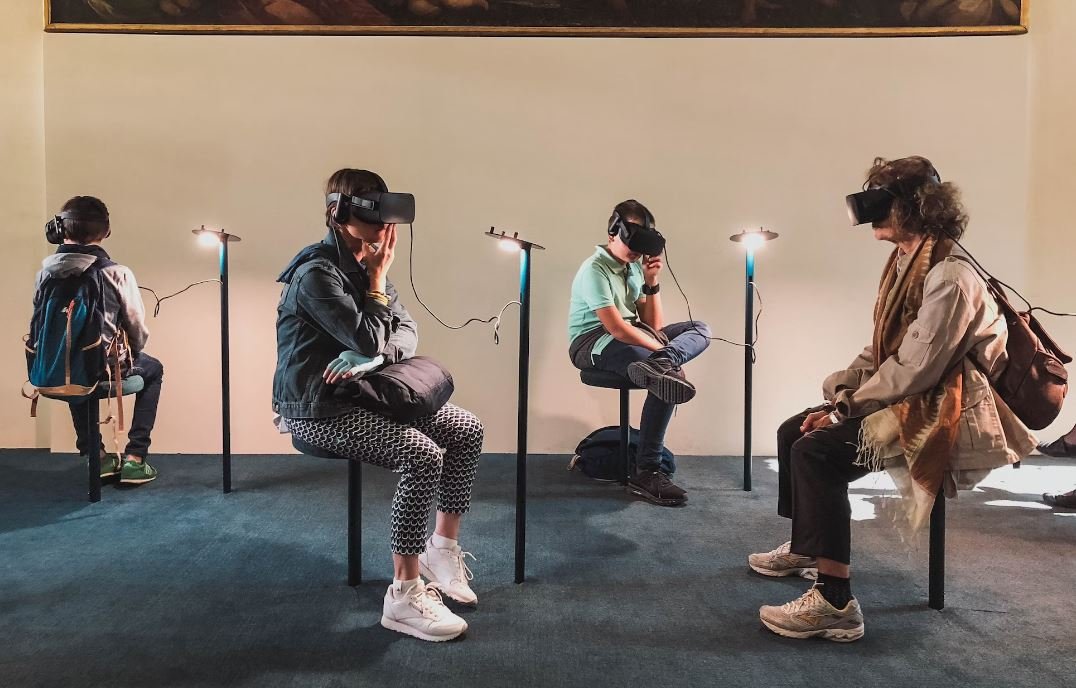Artificial Intelligence United Nations
The United Nations (UN) has been actively exploring the potential uses and impact of Artificial Intelligence (AI) on various aspects of global society. With AI rapidly advancing, it is crucial to understand how it can be harnessed for the benefit of humanity, as well as the potential risks and challenges it presents. This article provides an overview of the UN’s involvement in AI and highlights key initiatives and developments.
Key Takeaways:
- UN actively explores the potential uses and impact of AI.
- AI has both benefits and risks for humanity.
- Understanding and regulation of AI are crucial for its responsible development.
The UN recognizes the transformative power of AI and its potential to address global challenges such as poverty, inequality, climate change, and healthcare. AI has been recognized as a valuable tool for advancing the Sustainable Development Goals (SDGs) established by the UN. Through its various agencies and programs, the UN is engaging with governments, academia, industry, and civil society to facilitate discussions on AI ethics, governance, human rights, and socioeconomic implications. The UN aims to ensure that AI is developed and used in a manner that respects human dignity and promotes human rights.
The United Nations Initiatives in AI
The UN has launched several initiatives to foster dialogue, knowledge sharing, and collaboration in the field of AI. One noteworthy initiative is the United Nations Centre for Artificial Intelligence and Robotics (UNICRI), which focuses on addressing the challenges and risks associated with AI deployment, including cybersecurity, bias, transparency, and accountability. UNICRI conducts research, provides training, and advises governments on AI governance frameworks. It also supports the development of AI applications for humanitarian and peacekeeping operations.
Another key initiative is the AI for Good Global Summit organized by the International Telecommunication Union in partnership with other UN agencies and private sector entities. The summit brings together AI experts, policymakers, and representatives from NGOs to discuss the use of AI for advancing the SDGs. The event showcases innovative AI solutions and promotes collaboration in leveraging AI for social good.
Furthermore, the UN has established the Secretary-General’s High-level Panel on Digital Cooperation, which examines the impact of digital technologies, including AI, on sustainable development and global cooperation. The panel explores policy recommendations for harnessing digital technologies in a manner that benefits all segments of society and ensures human rights are protected in the digital age. This panel is aimed at fostering global cooperation and creating mechanisms for digital governance.
Data Privacy, Ethics, and Human Rights in AI
Data privacy, ethics, and human rights are critical considerations in the development and deployment of AI. The UN acknowledges the importance of ethical AI and the need to promote responsible AI practices globally. It emphasizes the protection of privacy, prevention of discrimination, and ensuring accountability for AI systems. Additionally, the UN advocates for the inclusion of diverse perspectives and voices in AI development processes, including marginalized communities. Transparency and explainability of AI algorithms are key to building trust and addressing biases.
Table 1: Examples of Ethical Principles for AI Development
| Principle | Description |
|---|---|
| Fairness | AI should treat all individuals fairly and without bias. |
| Transparency | The decision-making process of AI systems should be explainable and understandable. |
| Accountability | Those responsible for AI systems should be held accountable for their performance and impact. |
Table 2: Key Considerations for AI Regulation
- Legal and ethical standards
- Data protection and privacy
- Employment and labor impact
- Transparency and explainability
- Public trust and accountability
The UN also emphasizes the importance of human rights in the context of AI. AI should respect and protect fundamental rights, including privacy, freedom of expression, and non-discrimination. The UN’s Special Rapporteur on the promotion and protection of the right to freedom of opinion and expression has highlighted the need to ensure that AI systems do not infringe upon these rights. This ensures that AI technologies are developed and used in a manner that upholds human rights principles.
The Way Forward
As AI continues to advance and reshape the global landscape, the UN plays a crucial role in fostering international cooperation, dialogue, and regulation. Collaboration between governments, academia, industry, and civil society is vital to harness the potential of AI for the benefit of all. By ensuring the responsible and inclusive development of AI technologies, the UN aims to create a future where AI works in harmony with humanity. Together, we can navigate the opportunities and challenges presented by AI, advancing sustainable development and safeguarding human rights.
Table 3: Countries Leading in AI Development
| Rank | Country |
|---|---|
| 1 | United States |
| 2 | China |
| 3 | United Kingdom |

Common Misconceptions
Artificial Intelligence United Nations
There are several common misconceptions surrounding the topic of Artificial Intelligence (AI) in relation to the United Nations (UN).
1. AI will replace human decision-making in the UN: Many people believe that AI will completely take over decision-making processes within the UN, rendering human involvement unnecessary. However, this is not the case as AI is used to assist decision-makers, provide data analysis, and support strategic planning, but the final decisions are still made by humans.
- AI aids in data analysis for informed decision-making.
- Humans are essential for ethical considerations and complex judgments.
- AI can contribute to efficiency, but human judgment is irreplaceable.
2. AI will eliminate jobs in the UN: It is a common misconception that the implementation of AI in the UN will result in a significant reduction in job opportunities for humans. However, AI is primarily used to automate repetitive and mundane tasks, freeing up human resources to focus on complex and value-added work.
- AI automates repetitive tasks, allowing humans to focus on more challenging work.
- Human expertise is still required to oversee AI systems and ensure ethical considerations.
- AI can create new job roles related to its development and maintenance.
3. AI lacks accountability in the UN: Some people believe that the use of AI in the UN leads to a lack of accountability since machines are making decisions. However, accountability frameworks are established to ensure that AI systems are transparent, fair, and respect moral and legal standards.
- Accountability measures are in place to monitor and evaluate AI algorithms and outputs.
- Transparency in AI decision-making processes is crucial for accountability.
- Moral and legal standards guide the development and use of AI systems in the UN.
4. AI is a threat to international security: There is a misconception that AI poses a significant threat to international security and could be exploited by malicious actors. While there are risks associated with the misuse of AI, the UN actively promotes responsible AI development and usage to prevent potential threats.
- The UN promotes responsible AI guidelines to prevent security risks.
- International cooperation is encouraged to address AI-related security concerns.
- Ethical considerations are paramount in the implementation of AI to prevent misuse and threats.
5. AI will replace human diplomacy: Many people assume that AI will replace traditional diplomacy by facilitating international negotiations and conflict resolution. However, AI augments human diplomatic efforts by providing data-driven insights and supporting information sharing but cannot replace the essential role of skilled diplomats.
- AI can provide data analysis and insights for more informed diplomatic decisions.
- Human diplomacy relies on empathy, cultural understanding, and interpersonal communication.
- Successful diplomacy requires nuanced judgment and negotiation skills that AI lacks.

Artificial Intelligence Improving Healthcare
Artificial intelligence (AI) has been revolutionizing the healthcare industry, aiding in accurate diagnoses, personalized treatment plans, and even predicting outbreaks. The following table showcases the top five diseases where AI has made a significant impact in the healthcare sector.
| Disease | AI Application | Benefits |
|———|—————-|———-|
| Cancer | Identifying cancerous cells in medical images | Early detection, more effective treatment |
| Diabetes | Assessing patient data to predict complications | Timely intervention, improved patient outcomes |
| Alzheimer’s | Analyzing brain scans for early detection | Early intervention, improved quality of life |
| Heart disease | Predicting heart attacks based on patient data | Prevention, reduced mortality rates |
| Respiratory disorders | Monitoring and analyzing patient vital signs | Early detection, improved management |
AI-Powered Personal Assistants
Artificial intelligence-based personal assistants have become an integral part of our daily lives, helping us manage tasks and stay organized. The table below showcases the top AI-powered personal assistants along with their notable features.
| Personal Assistant | Notable Features |
|——————–|—————–|
| Siri | Voice recognition, natural language understanding |
| Google Assistant | Multilingual support, contextual awareness |
| Alexa | Integration with smart home devices, skills development |
| Cortana | Deep integration with Windows OS, integration with Outlook |
| Bixby | Integration with Samsung devices, voice command customization |
AI in Autonomous Vehicles
Autonomous vehicles are set to revolutionize the transportation industry, offering enhanced safety, reduced congestion, and improved efficiency. The table below showcases some of the notable advancements in AI technology for autonomous vehicles.
| Autonomous Vehicle AI Advancements | Description |
|———————————-|————-|
| Computer vision | Object recognition, lane detection, traffic sign detection |
| Sensor fusion | Integration of data from various sensors for a comprehensive view |
| Deep learning | Training AI systems to make decisions based on patterns and data |
| Natural language processing | Voice recognition for seamless interaction with passengers |
| Adaptive cruise control | AI-controlled speed adjustment to maintain safe distances |
AI in Climate Change Prediction
Artificial intelligence is also being leveraged in the fight against climate change, aiding in accurate predictions and analysis of environmental data. The table below presents noteworthy applications of AI in predicting climate change.
| AI Application | Description |
|————————|————-|
| Weather forecasting | Analyzing historical and real-time data for accurate predictions |
| Natural disaster prediction | Identifying patterns and warning signals for early alerts |
| Air pollution analysis | Monitoring and analyzing pollutant levels to identify sources |
| Climate modeling | Simulating scenarios to understand the impact of climate change |
| Renewable energy optimization | Analyzing data to determine optimal locations for renewable energy sources |
AI in Financial Services
Artificial intelligence has transformed the financial services sector, enabling automation, risk analysis, and personalized recommendations. The table below highlights some key applications of AI in the financial industry.
| AI Application | Description |
|——————————|————-|
| Fraud detection | Analyzing transaction data to identify suspicious patterns |
| Robo-advisors | AI-powered investment recommendations based on user preferences |
| Credit scoring | Assessing creditworthiness of applicants based on various factors |
| Algorithmic trading | Utilizing AI algorithms for automated stock trading decisions |
| Customer service chatbots | Providing instant assistance and personalized recommendations |
AI in Education
Artificial intelligence is revolutionizing the field of education, offering personalized learning experiences and enhancing assessment methods. The table below illustrates some impactful applications of AI in education.
| AI Application | Description |
|———————–|————-|
| Intelligent tutoring systems | Adaptive learning, personalized feedback |
| Automated grading | Efficient assessment of assignments, tests |
| Education chatbots | Instant support and answers to student queries |
| Intelligent content recommendation | Tailored learning resources based on individual needs |
| Virtual reality in education | Immersive learning experiences, simulations |
AI and Cybersecurity
Artificial intelligence plays a critical role in strengthening cybersecurity measures, identifying threats, and detecting vulnerabilities. The table below highlights some significant applications of AI in cybersecurity.
| AI Application | Description |
|———————-|————-|
| Intrusion detection | Identifying and blocking suspicious network activity |
| Malware analysis | Analyzing malware behavior and identifying potential risks |
| User behavior analytics | Detecting anomalous user behavior that may indicate a security breach |
| Phishing detection | Identifying and blocking phishing emails and websites |
| Vulnerability assessment | Scanning systems for vulnerabilities and suggest security patches |
AI and Personalized Marketing
Artificial intelligence enables personalized marketing, helping businesses offer tailored recommendations and advertisements. The table below showcases various AI applications in personalized marketing.
| AI Application | Description |
|———————–|————-|
| Customer segmentation | Analyzing customer data to identify segments for targeted marketing |
| Recommendation systems | Providing personalized product recommendations based on user preferences |
| Sentiment analysis | Analyzing social media data to understand customer opinions |
| Chatbot-powered customer support | Instant support, offering personalized assistance |
| Dynamic pricing | AI-driven pricing strategies based on consumer behavior and market trends |
AI and Social Robotics
Artificial intelligence is being integrated into social robotics, enabling human-like interactions and emotional understanding. The table below showcases noteworthy AI advancements in social robotics.
| AI Advancements in Social Robotics | Description |
|————————————-|————-|
| Emotional recognition | Identifying and interpreting facial expressions and emotions |
| Natural language processing | Understanding and responding to human speech in context |
| Gesture recognition | Interpreting human gestures and body language for more natural interactions |
| Personalized interaction | Tailoring responses and behavior based on individual preferences |
| Human-like companionship | Providing companionship and empathy through AI-driven interactions |
Conclusion
Artificial intelligence, as showcased through these diverse applications, has become a game-changer across various industries. It has revolutionized healthcare, transportation, climate predictions, finance, education, cybersecurity, marketing, and even social robotics. With its ability to process and analyze vast amounts of data, AI has transformed the way we live and enabled more efficient, personalized, and intelligent systems. As technology continues to evolve, the potential of AI seems limitless, promising further advancements that will shape our future.
Frequently Asked Questions
What is artificial intelligence?
Artificial intelligence (AI) refers to the development and implementation of computer systems that are capable of performing tasks that typically require human intelligence. These tasks include learning, reasoning, problem-solving, perception, language understanding, and decision making.
Why is artificial intelligence important?
Artificial intelligence has become increasingly important due to its potential to revolutionize various industries and improve efficiency and productivity. It has the capacity to automate repetitive tasks, enhance data analysis and decision-making processes, and enable the development of advanced technologies such as self-driving cars, virtual assistants, and intelligent robots.
What are the main applications of artificial intelligence?
Artificial intelligence finds applications in numerous fields, including healthcare, finance, manufacturing, transportation, customer service, and education. It can be used for medical diagnosis, fraud detection, predictive maintenance, autonomous vehicles, personalized recommendations, natural language processing, and intelligent tutoring, among others.
What are the ethical considerations associated with artificial intelligence?
As artificial intelligence becomes more prevalent, ethical considerations arise. Some concerns include privacy and data protection, bias and fairness in AI algorithms, job displacement, security risks, and transparency in decision-making. These ethical considerations need to be carefully addressed to ensure the responsible and beneficial use of AI.
How does artificial intelligence impact society?
Artificial intelligence has a significant impact on society, both positive and negative. On one hand, it offers opportunities for increased productivity, improved healthcare, and enhanced convenience. On the other hand, it can disrupt job markets, raise concerns about privacy, and potentially reinforce biases if not developed and deployed responsibly.
What is the United Nations’ role in artificial intelligence?
The United Nations recognizes the importance of artificial intelligence and its potential impact on global development and human rights. The UN aims to facilitate the understanding and responsible use of AI, promote international cooperation in AI development, and address the ethical implications to ensure AI benefits all of humanity.
Are there any international regulations on artificial intelligence?
As of now, there are no comprehensive international regulations specifically dedicated to artificial intelligence. However, various countries and organizations are actively discussing and proposing guidelines to govern the development and deployment of AI technologies. The United Nations is playing a role in these discussions.
How can artificial intelligence be used to tackle global challenges?
Artificial intelligence holds great potential to address global challenges such as climate change, poverty, and healthcare disparities. It can help analyze large datasets to identify patterns, optimize resource allocation, streamline processes, and develop innovative solutions. However, it is essential to ensure that AI is implemented in a way that is inclusive and equitable.
What are the future prospects of artificial intelligence?
The future prospects of artificial intelligence are vast. With advancements in machine learning, natural language processing, and robotics, AI is expected to continue transforming industries and everyday life. Future possibilities include further automation, personalized services, enhanced human-computer interaction, and breakthroughs in areas such as healthcare, energy, and sustainability.
How can individuals contribute to the development of artificial intelligence?
Individuals can contribute to the development of artificial intelligence by pursuing careers in AI research and development, participating in open-source projects, and staying informed about the latest advancements and ethical considerations. Collaboration, interdisciplinary knowledge, and diverse perspectives are crucial for shaping the future of AI in a responsible and beneficial manner.




